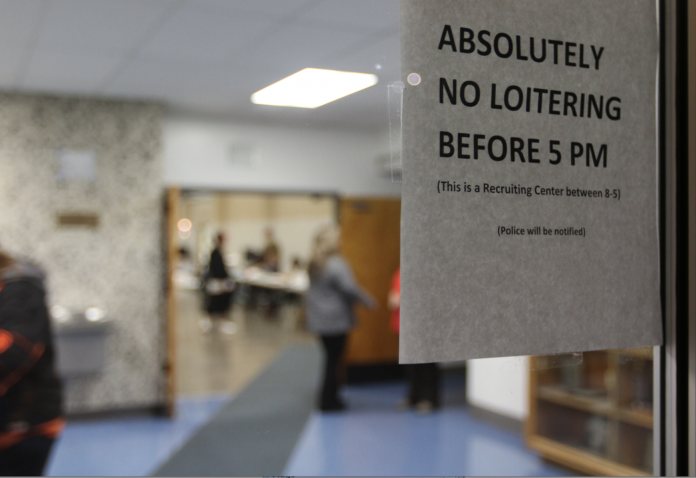The number of people living in cars, parks and on the streets has spiked in Gilroy, San Martin and Morgan Hill over the past two years, while at the same time—perhaps not coincidentally—it has dropped in San Jose.
Between 2013 and 2015, the number of homeless people in the three South Valley cities has risen—in Gilroy from 379 to 439; in San Martin from 159 to 338; and in Morgan Hill from 61 to 81. At the same time, homelessness has dropped in San Jose from 4,770 to 4,063.
Police Chief Denise Turner told the City Council on Monday that the increase is due in part to the fact that other shelters, such as one in Sunnyvale, have gotten stricter about whom they will accept. That shelter requires a referral, accepts people who will work with counselors, and lets people keep their beds and possessions over time in the same place, rather than accepting new people each night.
She’s also heard that other police departments are “re-towning” their homeless populations, giving people bus tokens and telling them to go to Gilroy’s shelter and take advantage of services in the city.
“I’ve talked to the other county police chiefs about it,” said Turner, who has no proof but told the council she’s heard it second- or third-hand from someone who was dropped off in town. “I’m not happy with it. I don’t think it’s right.”
A problem that should be worked on by the county has fallen into the laps of cities that can’t afford it, said Councilmember Roland Velasco.
“The county has been no friend to Gilroy,” he said. “In the sense that we have the armory and they continue to send them down without regard to our ability to house them. When the winter is over and the shelter closes, there is a portion that goes back to San Jose and there is a portion that stays here and our homeless population continues to grow.”
The state-owned armory in Gilroy opened a week earlier than its Nov. 30 official start date because of cold weather. Police were called to the shelter 78 times for violations including assaults, disturbances and threats, a 56 percent increase.
Turner gave the annual progress report following a request a year ago by the council to more strictly enforce laws to make Gilroy more livable.
The result is that 266 people were arrested for “quality of life” crimes, an 82 percent rise in 2015. Those incidents include trespassing, probation violations, narcotics, drunk in public, property crimes, resisting arrest, assault, panhandling and sex-related crimes. There were 1,802 calls for service for quality of life crimes, an increase of 250 percent; a 1,000 percent increase in medical calls and a 568 percent increase in police contacting people who may need help, rather than wait for a complaint.
On the plus side, Turner said the city was working to house 10 chronically homeless families in the Cherry Blossom apartments with county funds and services. Two families have already been housed. Chronically homeless people are ones who most tie up the system, who have been homeless for more than a year and are in desperate need of help.
They get caseworkers to help them get jobs and counseling to help with mental illnesses or drug dependency. Turner said she hopes the program can be expanded, if it proves to work.
The other positive news was that a mysterious “Secret Santa” with a “generous heart” donated thousands of dollars worth of McDonald’s gift cards to the police department to give to needy people. He also gave thousands of dollars in hundred dollar bills for police to give to needy people at Christmas time.
“They had a really great time with that,” Turner said of the police officers. “Our department had a great time giving that away. It really instilled pride. It really helped improve police-community relations, particularly with our homeless population. That was a huge plus. I’m really grateful to our ‘Secret Santa.’ I hope he comes back next year.”
Turner has asked the city to study the way Sunnyvale has changed and improved its armory for ideas on what can be done here. The council is having a study session and retreat in April and has put the issue on its agenda.












